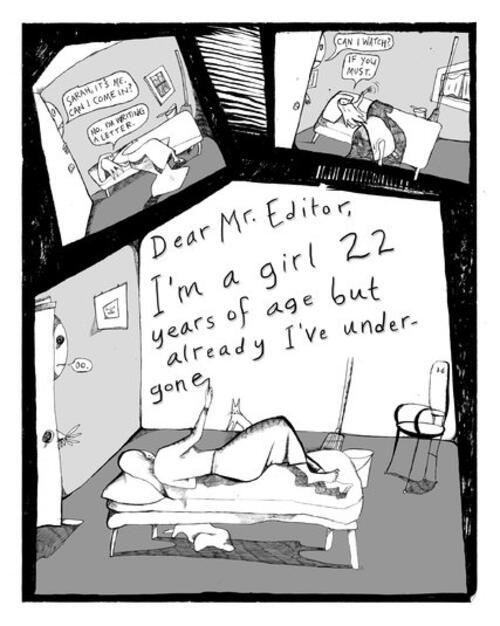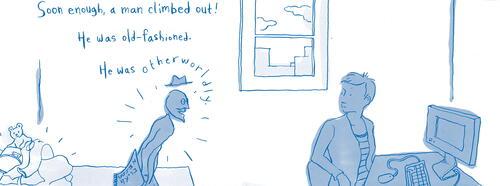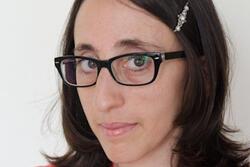A Bintel Brief: An Interview with Liana Finck
How many ways can you tell a story? To tell hers, artist and graphic novelist Liana Finck combines history, humor, and art in her book, A Bintel Brief: Love and Longing in Old New York. Inspired by the questions, fears, and uncertainties of turn-of-the-century Jewish immigrants, Finck lovingly adapts and presents several letters from the Bintel Brief advice column of the Yiddish newspaper, The Forward.
Finck spoke with JWA about “channeling” Abraham Cahan, editor of The Forward and creator of the original Bintel Brief advice column, her love of silent films and Yiddish culture, and what it is like to use social media to connect and commiserate in the 21st century.
Jewish Women's Archive: A Bintel Brief, which means “a bundle of letters” in Yiddish, juxtaposes the experiences of turn-of-the century Jewish immigrants with your modern quest for meaning. Did writing A Bintel Brief change how you felt about New York and the immigrant experience?
Liana Finck: Yes. It's a book about trying, and in most ways failing, to hold onto my great grandparents’ immigration stories…The book is more of a New York immigration story than a Jewish story; working on the book did make me feel my New York roots. It's the closest place I have to a homeland, since it's the first place anyone in my family was allowed to be free and work to better their lives in hundreds, if not thousands, of years.
JWA: Many of the book’s chapters deal with different characters not knowing either the proper or bravest way to respond to a challenge. While “channeling” Abraham Cahan for A Bintel Brief, did you find yourself hearing his voice in your modern life as well? Whose voices guide you in your life today?
LF: Cahan was the distant fatherly or god-like figure I've often talked to in my head, usually in the form of dead male writers and artists I loved: Kafka, Nabokov, Saul Steinberg. He’s “my type:” smart, lonely, doesn't suffer fools gladly.
JWA: What was it like for you to draw yourself as a character in this story? Do you draw yourself differently for different projects?
LF: I don't know or care who I really am. That self was partially based on my editor, partly on the woman in Breathless, whose hairstyle I like. Lately, my drawings of myself are based on my second dog, a yellow lab named Sophie.
JWA: What do you think made A Bintel Brief advice column so popular? Does social media offer the same benefits that advice columns once did, or are there certain things readers get from advice columns that they can’t get from online communities?
LF: Social media does many of the same things, for better and for worse. A Bintel Brief might have been so popular because it gave a voice to poor immigrants who had never had one. They got to see their words in print, and in the language they spoke (The Forward was groundbreaking in that it was published in Yiddish and not a “more educated” language). It helped disenfranchised people feel empowered and helped them organize in order to make their lives better.
JWA: In your interview with Words without Borders, you mention watching Yiddish films starring Molly Picon as a way of immersing yourself in Yiddish culture. What was it about Picon that resonated with you? Do you have any other favorite Jewish women from history?
LF: I love silent film. The expressiveness, the simplicity, the drama. Molly Picon embodies that. I also love Yiddish, for some of the same reasons I like silent film. And of course I have other favorite Jewish women from history, and even some from the present day. One of my favorites from history is the painter Charlotte Salomon. She also told stories in pictures.
JWA: A Bintel Brief was sparked by a family mystery; are there other family stories you may want to explore someday through comics? What are you working on now?
LF: I made that part up! But I had some funny great uncles I would like to write about one day. I just finished a draft of another graphic novel and I'm waiting to see if it will be published.
Liana Finck is a cartoonist. Her first book, A Bintel Brief: Love and Longing in Old New York, was released by Ecco in 2014. Her work appears regularly in The New Yorker and The Awl, and on her Instagram.
Read more about Liana Finck here!










